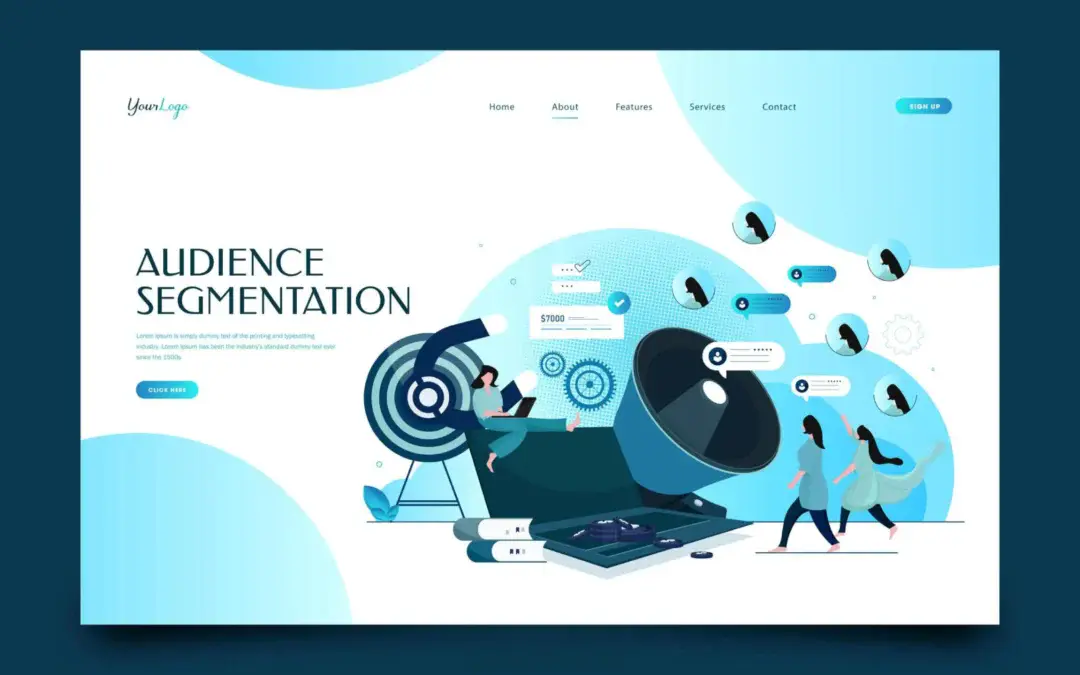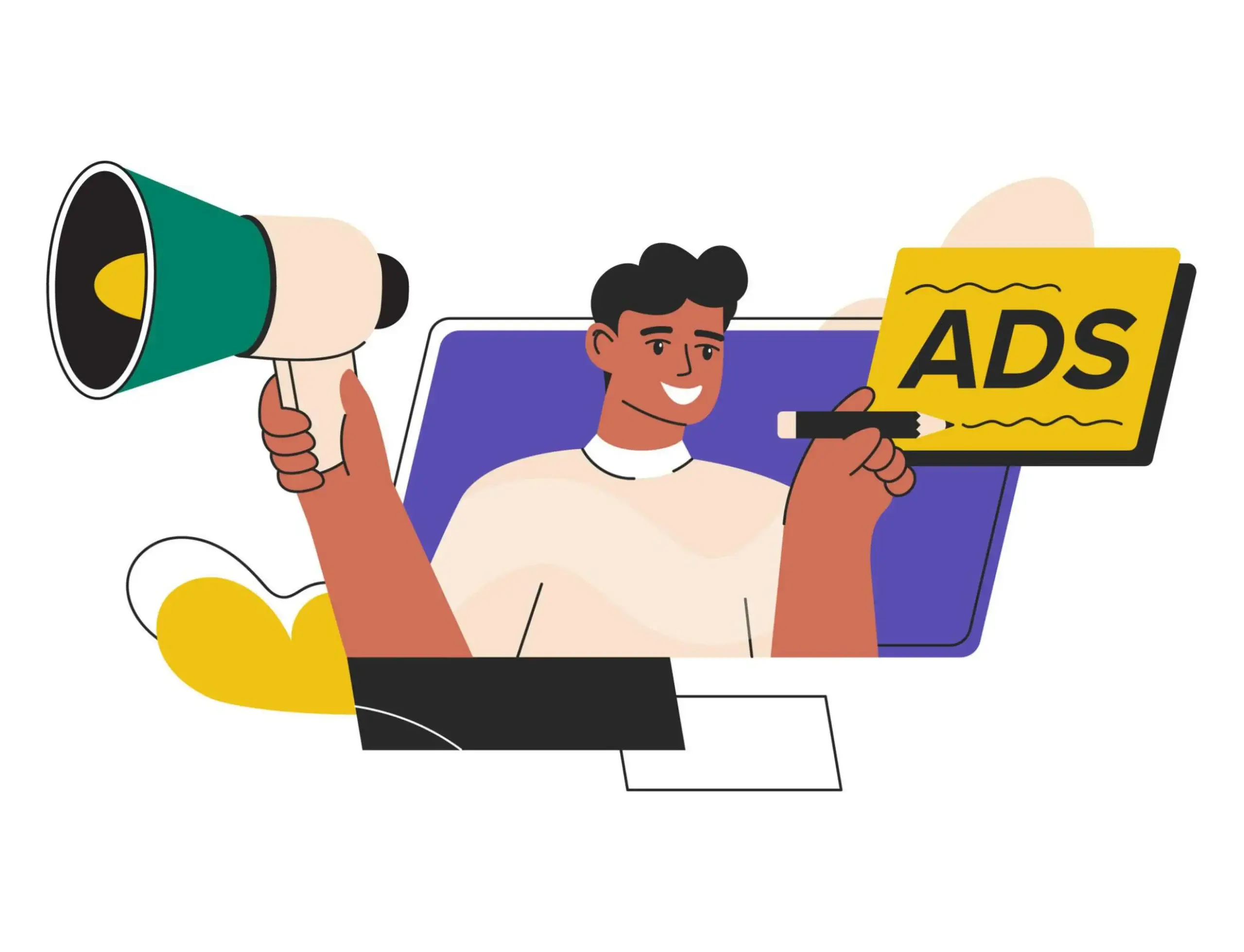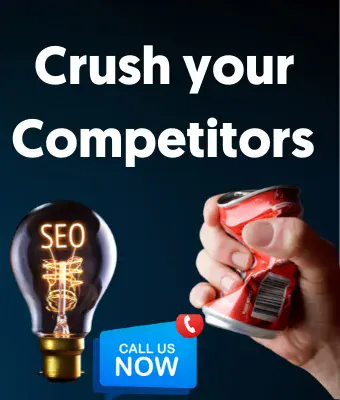
How to Target the Right Audience on Facebook and optimize Ads in 2024
How to Target the Right Audience On Facebook and Optimize Your Facebook Ads in 2024
Want your Facebook ad campaigns to drive more conversions and sales? Then you need to learn how to target the right audience on Facebook. With over 2 billion monthly active users, Facebook gives you an incredibly powerful platform to connect with your ideal customers. But with such a large and diverse user base, narrowing down your target market is critical.
In this comprehensive guide, you’ll learn proven Facebook audience targeting tactics to get your ads in front of people more likely to buy what you’re selling.
How To Target the Right Audience on Facebook?
Targeting the optimal audience for your Facebook ads takes both art and science. Follow this step-by-step process to methodically narrow down who you want to reach.

Step 1: Define Your Ideal Customer
Before you can target your ads correctly, you need to intimately understand your ideal customer or client. Build out detailed buyer personas that outline:
- Demographics – age, location, gender, income level, education status, interests and behaviors
- Psychographics – values, priorities, personality traits, beliefs, attitudes
- Pain points & goals – what problems they face and what motivates them
Fleshing out detailed personas for each of your customer segments helps you craft more compelling messaging and visualize who you’re trying to reach.
Step 2: Use Detailed Targeting Options in Facebook Ads Manager
Once you know who you’re trying to target, go to Facebook Ads Manager and select your objective. Then under “Detailed Targeting” you can specify parameters like:
- Location – target down to city or postal code radius level
- Age – specify age ranges
- Gender
- Languages – target based on users’ primary languages
- Interests – select interests related to your products/services
- Behaviors – target based on purchase behaviors, device usage, and more
You can enter multiple parameters to combine criteria and narrow your audience focus even further.
Step 3: Analyze Your Audience Insights
Dive into Facebook’s detailed Audience Insights tool to uncover more information on your target customers. Here you can see demographic data, page likes, purchase behaviors, and other attributes of your ideal audience.
Look at the pages and posts they actively engage with to identify where your brand should have a presence and spot new partnerships, influencers, and advertising opportunities.
Step 4: Test Different Targeting Combinations
Don’t be afraid to test different variations of your audience targeting to see what works. Try narrowing it down by:
- Interests & purchase behaviors
- Income levels
- Specific location radius sizes
- Age ranges
- And more…
Set up A/B ad sets with the same ads and landing pages, but show them to different audience segments. See which target customers drive more conversions at the best cost per result.
Step 5: Continually Optimize Your Campaigns
Audience targeting should not be a set-it-and-forget-it thing. Consistently review your campaign analytics to spot opportunities for improvement. Look for targeting combinations and creatives that are over or underperforming.
Let data guide your optimization efforts – double down on what’s working well and tweak or eliminate target audiences that aren’t generating results cost-effectively.
How to Target the Right Audience on Facebook Ads
Facebook gives you powerful options for drilling down your target audience beyond just basic demographics. Follow these tips to effectively use their detailed targeting for your ad campaigns:
Focus on Interests & Behaviors
Some of the most valuable audience targeting capabilities Facebook provides is based on how people behave and what they’re interested in. You can target users based on:
- Pages and topics they’ve liked or followed
- Types of content they frequently engage with
- Groups and forums they are members of
- Shopping behaviors like recent purchases
- Travel preferences and behaviors
- Financial buying power and activity
- Job titles and employment status
- Education level and school attendance
And much more. Don’t limit yourself to just demographic and location targeting – behavioral and interest signals help you further qualify audiences more likely to buy from you.

Layer on Retargeting for Sales Funnels
In addition to selecting interest and behavior targeting, implement Facebook pixel retargeting across your sales funnels. Create custom audiences to market to people who have:
- Visited specific pages on your website
- Interacted with your ads previously
- Watched a certain % of your video
- Initiated purchases or checkouts
- And more…
This allows you to continue nurturing leads by serving them relevant ads as they continue moving toward a conversion.
Experiment with Lookalike Audiences
Once you have a decent-sized custom audience such as customers or email list subscribers, have Facebook create a lookalike audience. This helps you find new people who share common qualities with your existing customers.
You can even create lookalikes from your competitor’s followers. And with a 1% Facebook pixel pool, you’ll get a large matching group of prospective customers.
Facebook Target Audience Demographics: How to Select Age, Gender & Location
As you narrow down your target audience, let’s look at how to best use Facebook’s core demographic criteria:
Dial In Age Ranges Strategically
Be strategic with selecting age ranges in your ad targeting. Identify at what age your products or services become relevant to consumers. Then set ranges broad enough to provide sufficient reach, but not overly broad where relevancy drops off.
Test different generational groupings like millennials, Gen Xers, and baby boomers to see which age brackets perform best. You can save these as reusable audiences for future campaigns.
Don’t Ignore Gender Nuances
While some brands have relatively equal appeal across men and women, others need to consider gender tendencies carefully. Analyze if your products skew towards male or female audiences and adjust targeting appropriately.
This can get quite granular – for example, targeting specific beauty or parenting ad variants to mothers only. Always focus ad messaging and imagery to resonate best with the selected gender(s).
Get Locations Right for Localization & Language
Dialing in location and language parameters helps you properly localize messaging while adhering to regional compliance rules. You can target by country, state/region, city, postal code radius, and more. Make sure you have sufficient audience size availability before narrowing too far geographically.
Utilize language targeting not just for different dialects, but also to reach expats abroad interested in brands and products from their home countries.
Facebook Target Audience List: How to Use Interests, Behaviors & Retargeting
Let’s explore some of those interest, behavior, and retargeting methods mentioned earlier. These provide powerful, precise ways beyond basic demographics to qualify engaged audiences.
Interest Targeting for Relevance
Use Facebook’s expansive interest categories to target consumers actively following and engaging with content related to your niche. If you sell running shoes, target interests like marathon running, 5ks, or treadmill workouts.
This helps serve your ads to more qualified prospects interested in your products or services. Just avoid overly narrow niche interest targeting that limits audience size drastically.
Funnel Behaviors to Different Stages
Create custom audiences for those interacting with specific content across your marketing funnel, like:
- Visiting product categories or brand pages
- Watching 50-75% of a video
- Clicking email or chat links
- Abandoning purchases
- And more...
Then create ads and messaging specific to each of those stages to continue driving them towards conversion.
Flexible Combinations for Testing
The benefit of using interests, behaviors, and other qualification signals is you can get quite advanced with target audience combinations. Test adding and removing various selection criteria to gauge the impact on cost per result and ROI.
Build target audiences around your ideal customers’ shared qualities for efficient spending. Continually monitor performance indicators and optimize accordingly.
Facebook Audience Insights: Competitive Research
Beyond guiding your ad targeting, you can leverage Facebook’s powerful Audience Insights tool for market and competitive research intelligence as well.
Benchmark Your Brand’s Social Audience
Dive into Audience Insights for your own Facebook page or ads account to better understand current followers and their qualities. Then develop buyer personas for who you want to attract to shape content and ad targeting accordingly.
See which posts and topics your audience actively engages with. Identify whether you need to create more content focused on their interests and behaviors.
Analyze Competitors’ Successes
Research direct and tangential competitors using Audience Insights to size up their Facebook success. See content engagement levels, types of followers, and follower growth rates.
Spot potential partnership opportunities with aligned brands attracting your target customer. Or find areas for differentiation by identifying and avoiding competitors’ pitfalls.
Best Target Audience for Facebook Ads = Data-Driven Decisions
While ideal customer qualities provide a strong starting point, the best way to determine your optimum audience is by analyzing campaign performance data directly in Facebook Ads Manager.
Benchmark Cost Per Result Metrics
Pay close attention to your cost metrics per conversion result to gauge real-world performance for each audience segment you target. Benchmark cost per:
- Landing page view
- Add to cart
- Registration
- Purchase
And any other key conversion events. See which interest and behavioral targeting filters lead to the most sales efficiently alongside their response and relevance rates.
Make Data-Driven Optimization Choices
Let hard campaign data guide your optimization decisions as you add and subtract audience targeting criteria. Remove groups that drive weak cost efficiency or relevance. Lower bids on overperforming segments driving conversions inexpensively already. The best target audiences can change over time. Keep monitoring the numbers to invest most in proven buyers demonstrating predictable ROI.
Facebook Behavioral Target List: Retargeting Active Prospects
One tactic covered earlier that combines great with the above data-driven decisions is behavioral retargeting. Creating audiences of people actively engaging already, then nurturing them via customized messaging and offers throughout their buyer’s journeys.
Prioritize High Intent Audiences
The most proven purchasing audiences? Those who’ve already shown interest directly!
Prioritize retargeting recent site visitors, engagement high video viewers and email subscribers over cold traffic. Then layer your interest and niche behavioral filters on as the icing on the cake.
Guide Ads By Stage of Funnel
Customize display ads, special offers, and video content shown to people based on their stage within your sales funnel using retargeting. For example:
Top Funnel Cold Traffic
Lead gen downloads or quizzes
Limited-time free trials
Webinar sign-up discounts
Mid Funnel Site Visitors
Product education guides
Consultation booking offers
Membership trial pitches
Bottom Funnel Recent Purchasers
Upsell additional products
Cross-sell complementary services
Rewards programs
This strategic segmentation speaks directly to leads based on where their buyer’s journey stands currently.
Scale Lookalikes Segments Strategically
As high-intent custom audiences grow and convert consistently, use them as the source to build expanded lookalike audiences. Test interest layering and 1-5% source audience pool sizes to balance scale and precision.
Facebook Target Audience Age: Hitting Key Demographics
When narrowing your audience targeting by age, consider not just the expected demographic inclinations, but also how digital behaviors and communication channel preferences vary across generations.
Millennials & Gen Z
The first generations to grow up entirely in a digital world. Key Qualities:
- Mobile-first communication preferences
- Drawn to visual & interactive content
- Value honesty & transparency
- Cause-driven buyers
- Favor recommendations over corporate messages
Tactics
- Visually compelling video & social ads
- Influencer blogger partnerships
- Positive brand mission messaging
- Geo-fencing & retargeting mobile users
Gen X & Younger Boomers
In their peak earning years with high disposable income, but more sales objections to overcome. Key Qualities:
- Research purchases rigorously
- Value quality & durability
- Look for value-oriented offers
- Still active on Facebook commenting and sharing
Tactics
Targeted emails with personalized subject lines
Retarget recent website visitors
Leverage Facebook groups & niche interests
Focus on product benefits over flashiness
Older Baby Boomers & Beyond
Outside of the prime tech-savvy demographic, but maintain significant buying power. Key Qualities:
- Prefer calls over digital communication
- Read print over digital media
- Look to TV for trusted advertising
- Faith-based & community-centric
Tactics
- Leverage Facebook to drive awareness initially
- Streamline clicks to calls to action
- Target household income levels
- Pursue print publication ad partnerships
While Facebook can still reach these older demographics, be ready to drive them to offline or direct phone call conversions once interest is captured.
Continually Refine Your Targeting for Improved Performance
As with most marketing channels and campaigns, the key is continual testing and optimization. Use the above targeting tactics and data analysis to consistently refine your Facebook audience focusing on improved cost efficiency and sales volumes over time.
Frequently Asked Questions
How broad or narrow should my target audience be?
When just starting, begin with a moderately broad target to ensure you’re reaching enough people interested in your offer. As you accumulate campaign data on what works, narrow your focus on the best-converting audience segments.
How much should I budget for audience testing?
Ideally invest at least $500-$1000 to test 4-5 different audience variables like interests, behaviors, and income levels. Assess performance over 2 weeks while active. Significant budget increases can come once winners are identified through testing.
What’s more important – interest targeting or pixel retargeting?
Ideally utilize both in audience targeting recipes. Relying solely on interests can have low relevance despite massive reach. However, retargeting alone limits the discovery of new prospective customers. Use retargeting to double down on existing site visitors then supplement with interest expansion tactics.
How often should I reanalyze my target audience composition?
Check in at minimum every quarter assessing campaign analytics to spot demographic, interest, and behavior shifts amongst your best converting audience segments. Additionally, revisit overall market targeting every 6-12 months to capture rising trends proactively.
Conclusion
Getting your Facebook audience targeting right is foundational to driving conversions efficiently. While mass-blasting ads broadly garner awareness, strategic segmentation ensures you’re allocating ad spend towards prospects likely to buy. Leverage their expansive interest, behavioral, and retargeting filters to fine-tune who sees your ads. Let ongoing campaign data guide optimization decisions to improve cost per result over time. What targeting tactics have you found most effective? Share your top audience-focusing tips in the comments below!
if you want to know how we can grow our client’s business book a free consultancy with our experts.


